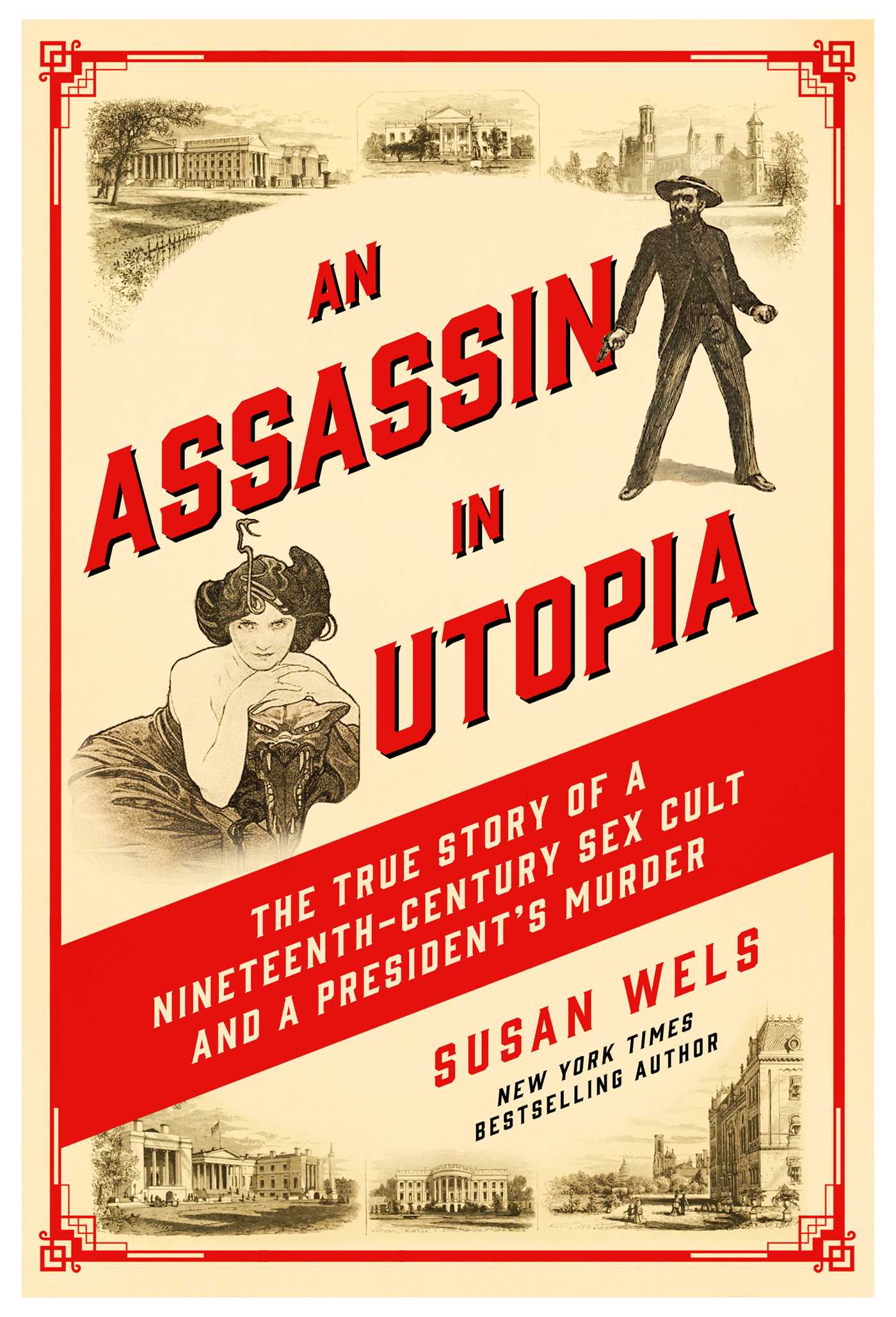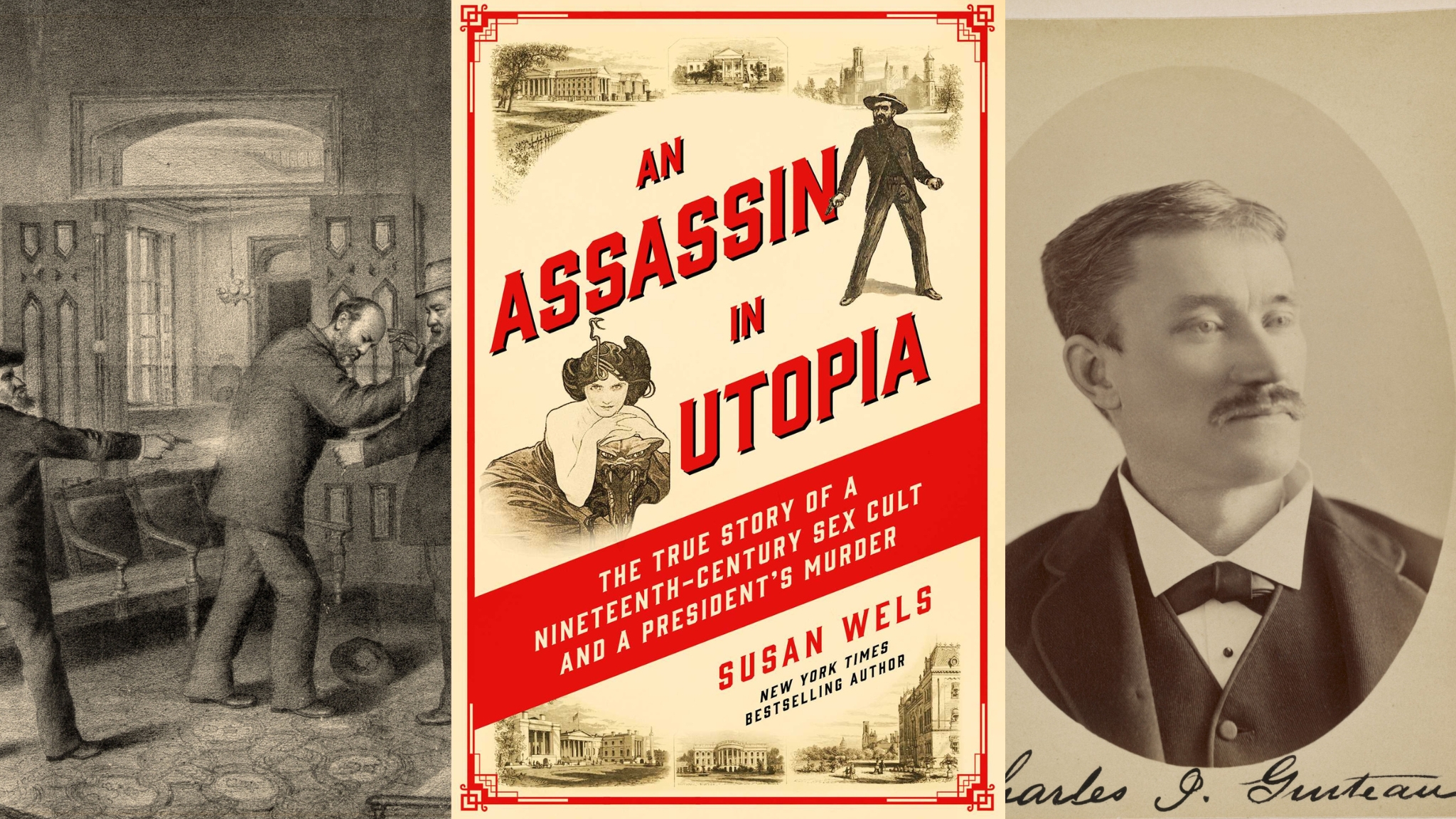An Assassin in Utopia: The True Story of a Nineteenth-Century Sex Cult and a President’s Murder by Susan Wels
What's It About?
Follows the story of Charles Guiteau — a delusional drifter who assassinated President James A. Garfield — and the assortment of madness surrounding his case.Even if you’re no expert on American history, you will have your finger on its pulse while reading An Assassin in Utopia: The True Story of a Nineteenth-Century Sex Cult and a President’s Murder (Pegasus Crime).
The third book by journalist Susan Wels, whose bestseller on the Titanic appeared in 1997, An Assassin in Utopia unfolds like a magic show full of unimaginable characters who have lurked in the wings for more than 180 years.
Weaving together the lives of newspaper editors, bohemians, politicians and many other historical figures both great and shabby, Wels captures the cultural trends, movements, and political warfare that animated American society between 1848 and 1881. Readers will not find a dull word in these pages.
The Oneida Community — “An Infernal Eden”
At the center of the story is Charles Guiteau, a delusional drifter who plotted to assassinate President James A. Garfield for reasons that echo in today’s fraught campaigns and elections. Guiteau believed that Garfield had destroyed the Republican Party. His plan — which succeeded — was to elevate the corrupt vice president Chester Arthur to the presidency and restore to power Arthur’s cronies in the New York political machine, including a particularly vile dandy with an inimitable name, Roscoe Conkling.
But long before Guiteau shot Garfield, he had cast his lot in an unlikely place for a scraggly, grouchy misfit: the utopian Oneida Community about 25 miles east of Syracuse in north-central New York State. Oneida was “an infernal Eden,” in Wels’ words. It existed largely to promote sex; as much sex as possible between the men, women and children who lived there.
John Humphrey Noyes, a Yale-educated quasi-theologian, presided over what Wels characterizes as a sex cult that started in the mid-1830s. “Sex, he believed, was an act of human and celestial discovery,” writes Wels. Like all cult leaders, Noyes neatly fit the type of master and prophet, exercising absolute control over community members although his ideology seemed benign.
Through the Civil War and into the 1870s, Oneida drew thousands of curious visitors. The community earned income through farming and manufacturing silk thread and finely crafted tools and household items. In that sense Oneida resembled the Shaker and Amish communities, self-isolated from the mainstream yet a source of material goods desired by many Americans.
From Rejected Lunatic to Assassin
Twice Charles Guiteau joined Oneida and stormed off angrily. Women were not attracted to him, he claimed, for which he blamed them. Further, he did not like hard work, which was required of all members of the community. Noyes denounced Guiteau as insane and violent, not to mention addicted to masturbation — an interesting affront, considering the context.
After leaving Oneida for the last time, Guiteau traveled west to Chicago, apprenticed in law, married a librarian, tried his hand at journalism, and kept striking out. He was physically unwell; before divorcing Guiteau in 1873, his wife nursed him through syphilis. Yet even as Guiteau became bankrupt, friendless and, his father wrote, “a fit subject for a lunatic asylum,” Guiteau continued to envision a grand future for himself.
And that is what brought him to Washington, D.C. in March of 1881, the day after President Garfield’s inauguration. For months Guiteau skulked around the city, lobbying government officials for a diplomatic position. He wrote dozens of letters, attended receptions, and visited the White House daily. Once he even made it into Garfield’s private office.
Meanwhile, Garfield agonized over Republican Party politics and his wife, Lucretia, who had been stricken with malaria. After her recovery in early June, she and their five children headed to a hotel on the shore in Long Branch, N.J., where they planned to spend the summer. Soon after, the president would follow. Since his itinerary was public knowledge, Guiteau effortlessly lay in wait as Garfield entered the train station in Washington, D.C.
Historical Madness
Guiteau’s trial would be the first high-profile case in which the defendant pleaded not guilty because of insanity. The defense blamed the Oneida Community for Guiteau’s obsessions. In elegant prose, An Assassin in Utopia closes with Guiteau’s execution in 1882. It was less retribution than spectacle, Wels suggests, with souvenirs and relics distributed to museums and the public.
While Oneida flourished and declined, the nation transitioned from ruralism to industrialization. Immigration surged and the promise of the Union’s victory would fall to Jim Crow and political corruption. From the ashes of Garfield and Guiteau rose the Gilded Age. Perhaps readers will get lucky and Susan Wels will retrieve further historical madness from the turn of the twentieth century.
 About Susan Wels:
About Susan Wels:
Susan Wels is a bestselling author, historian and journalist. Her Titanic: Legacy of the World’s Greatest Ocean Liner spent fourteen weeks on the New York Times bestseller list; the book was also a Wall Street Journal, Washington Post, and USA Today bestseller. Her work has received press coverage in PEOPLE, Smithsonian’s Air & Space Magazine, the San Francisco Chronicle, the San Francisco Examiner, and the San Jose Mercury-News among many other journals. Wels’s work as a historian includes her acclaimed San Francisco: Arts for the City as well as her research on the role of women at the 1893 Chicago World’s Fair. Wels and her husband divide their time between the San Francisco Bay Area and their farm in the south of Chile.





